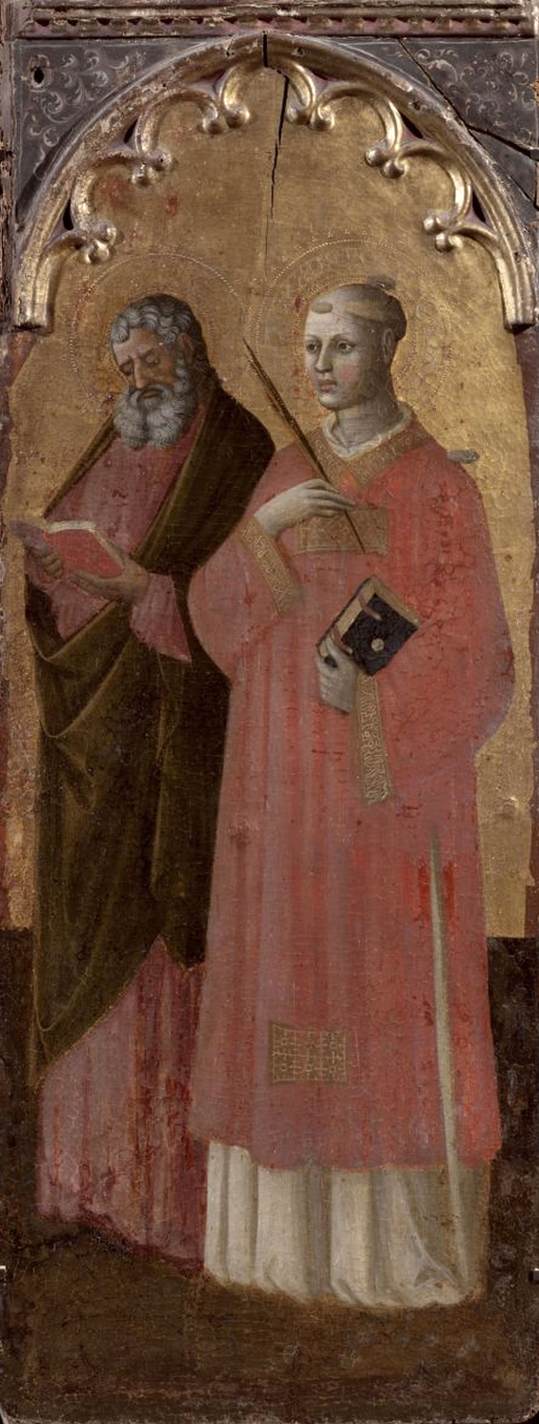Description
Borghese artist Di Piero Borghese's painting "Sts John the Evangelist and Stephen" is an Italian Renaissance masterpiece that captures the essence of religious devotion and artistic beauty. The work, which has an original size of 140 x 52 cm, presents a harmonious and balanced composition that demonstrates the artist's ability to create a striking and aesthetically pleasing image.
The artistic style of the painting is typically Renaissance, with meticulous detail and careful attention to anatomy and perspective. The colors are intense and saturated, giving the work a sense of vitality and energy. The central figure of Saint John the Evangelist is represented with a deep red cloak, which contrasts with the dark background and adds a dramatic element to the composition.
The history of the painting is interesting and little known. It was created in the second half of the 16th century for the Church of San Giovanni Battista in the city of Siena, Italy. The work was commissioned by the Borghese family, one of the most influential of the time, who wanted to honor their ancestors and demonstrate their religious devotion.
One of the most interesting aspects of the painting is the way Borghese Di Piero Borghese depicts the saints. Saint John the Evangelist is represented with a serene and contemplative look, while Saint Stephen has a more intense and passionate expression. This difference in the representation of the saints adds an element of dynamism to the work and demonstrates the artist's ability to create complex and emotionally rich characters.
In summary, the painting "Sts John the Evangelist and Stephen" by Borghese Di Piero Borghese is a masterpiece of the Italian Renaissance noted for its artistic style, balanced composition, intense colors and the artist's ability to create complex and emotionally rich characters. The history of the painting is interesting and little known, adding an additional element of mystery and fascination to this iconic work of art.

